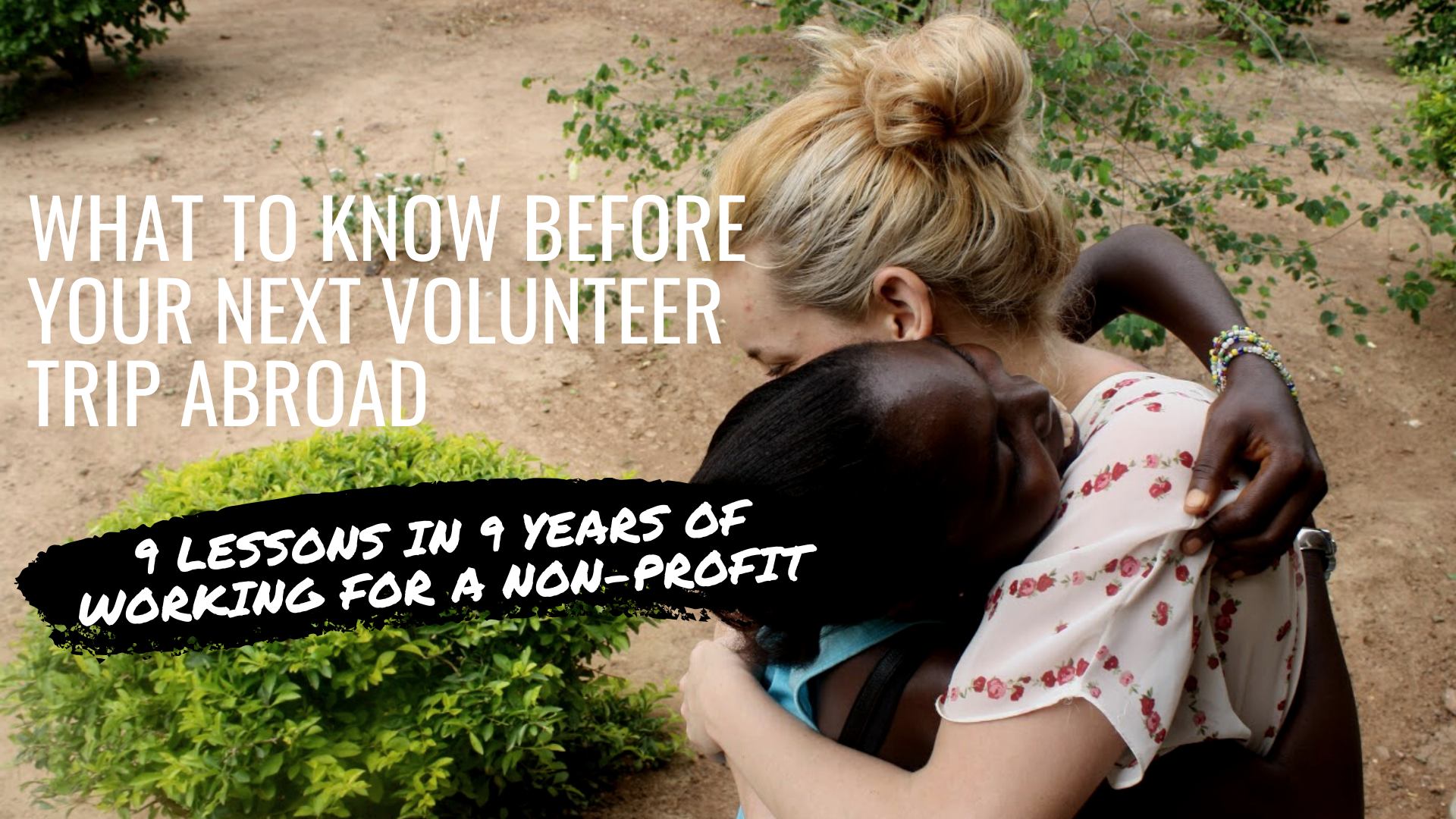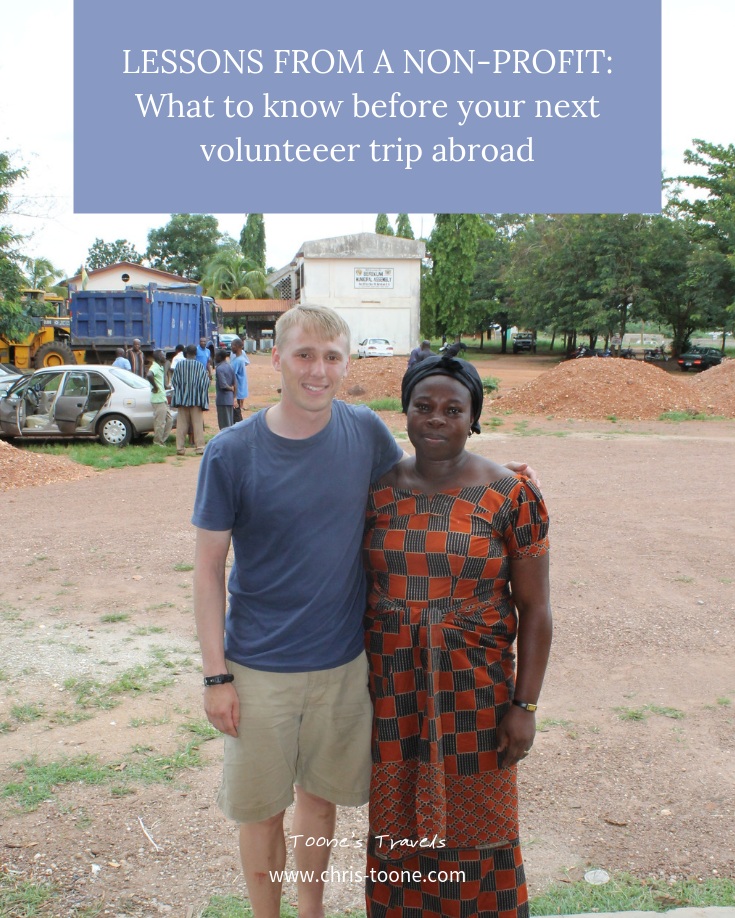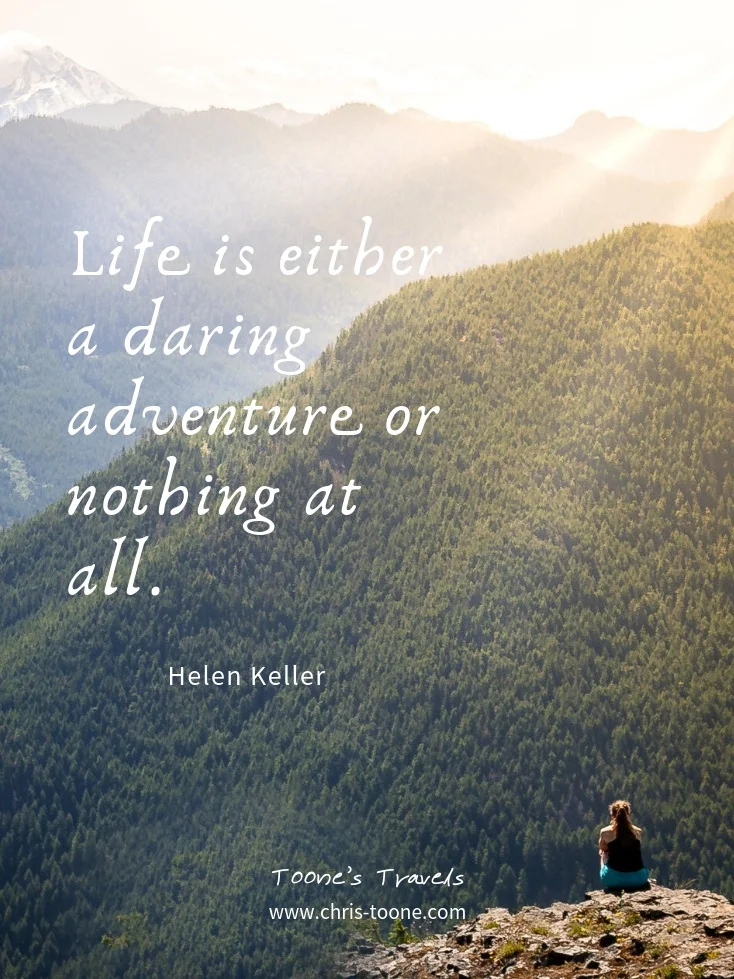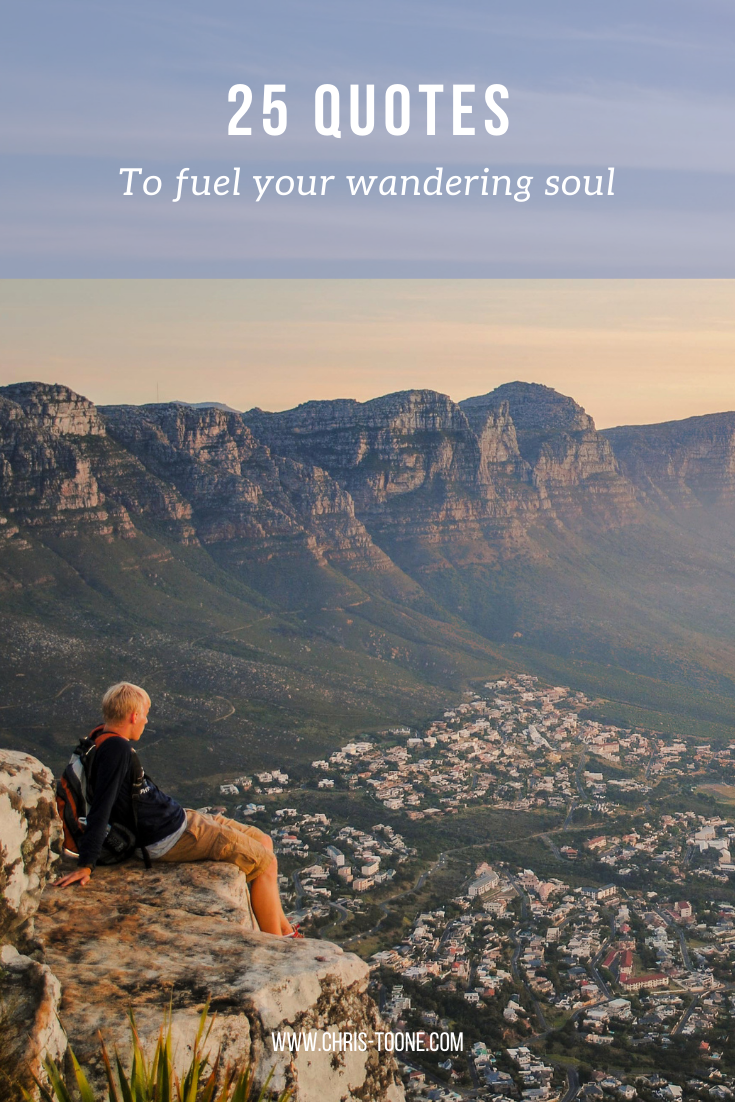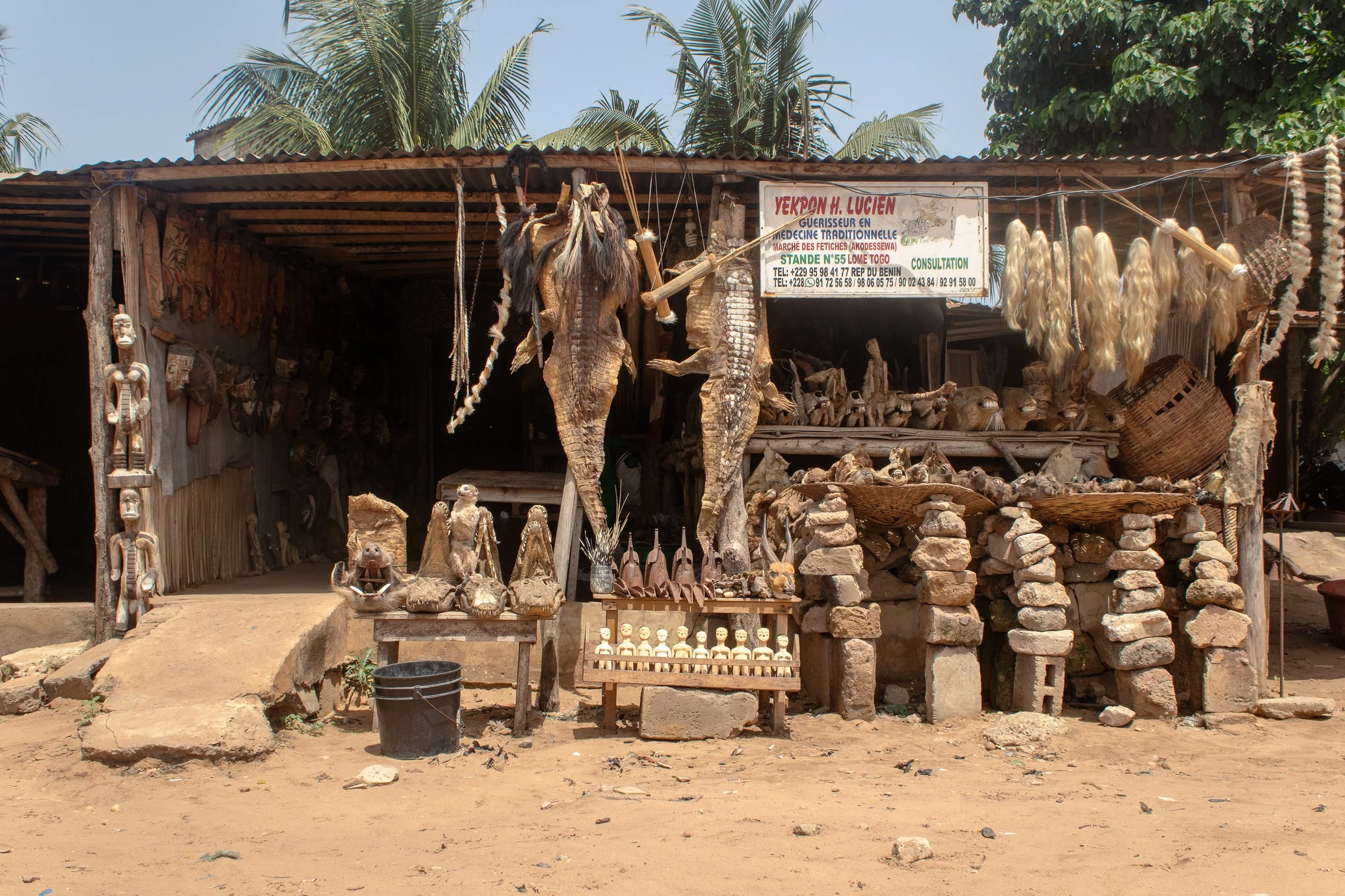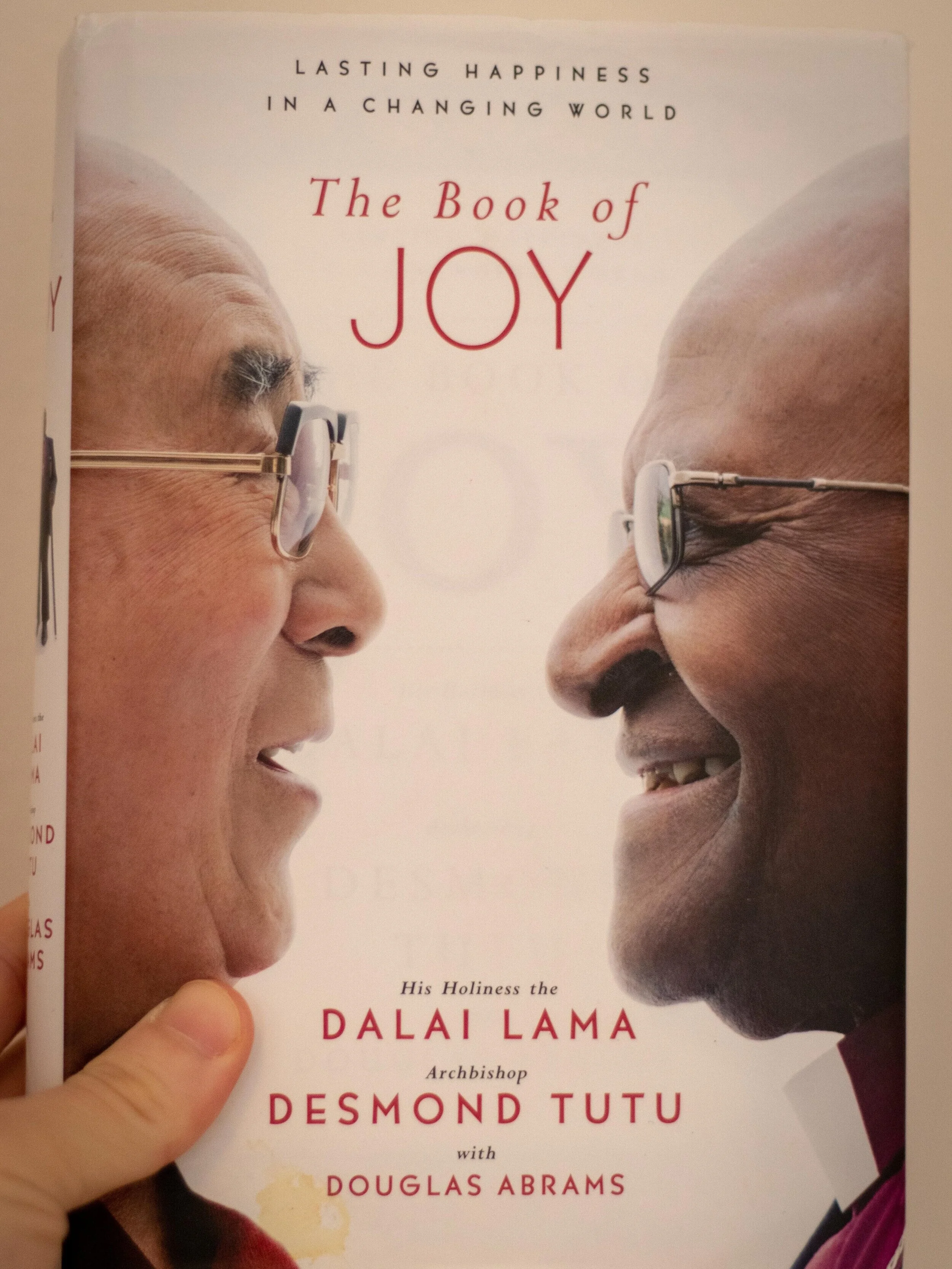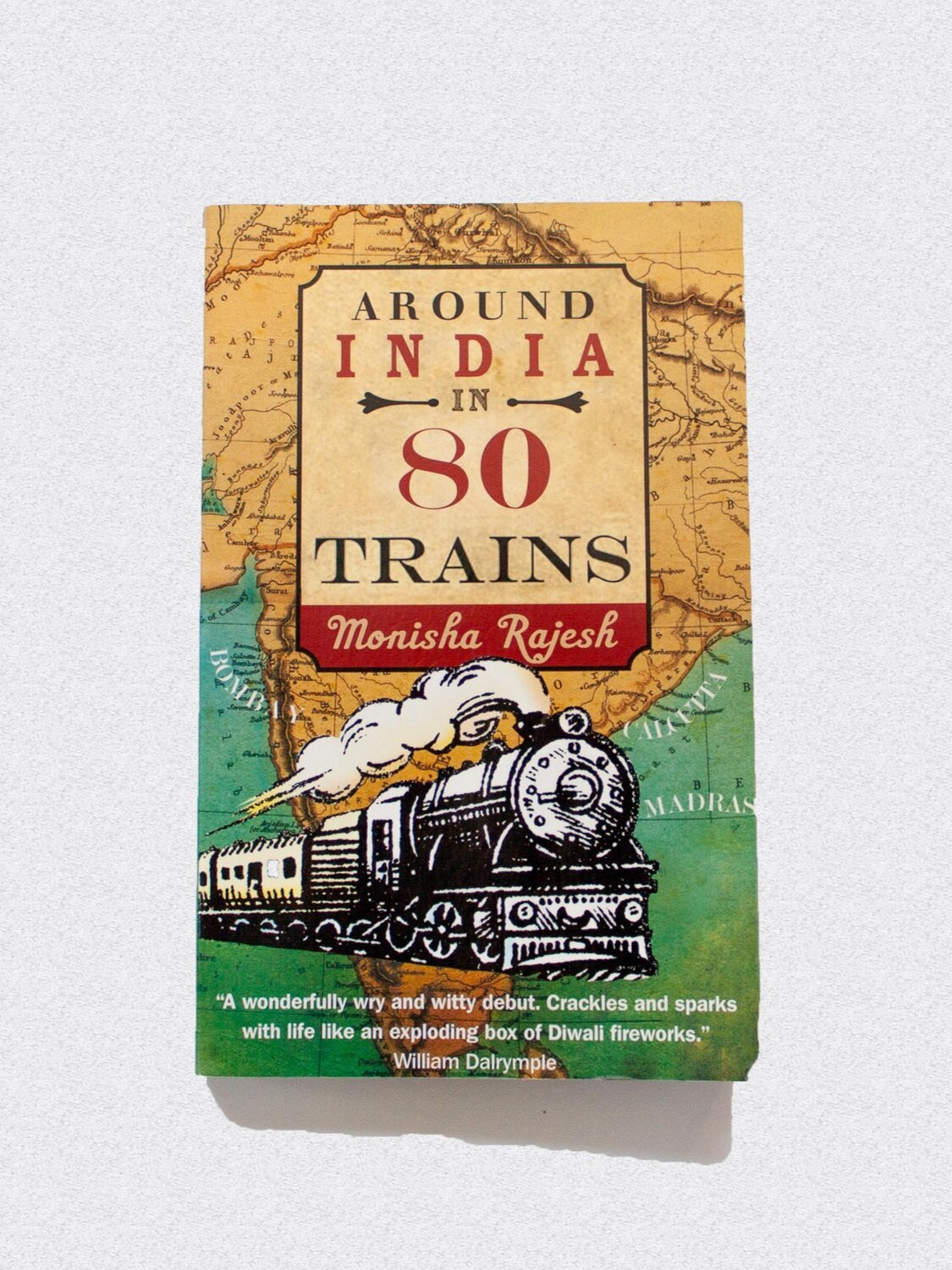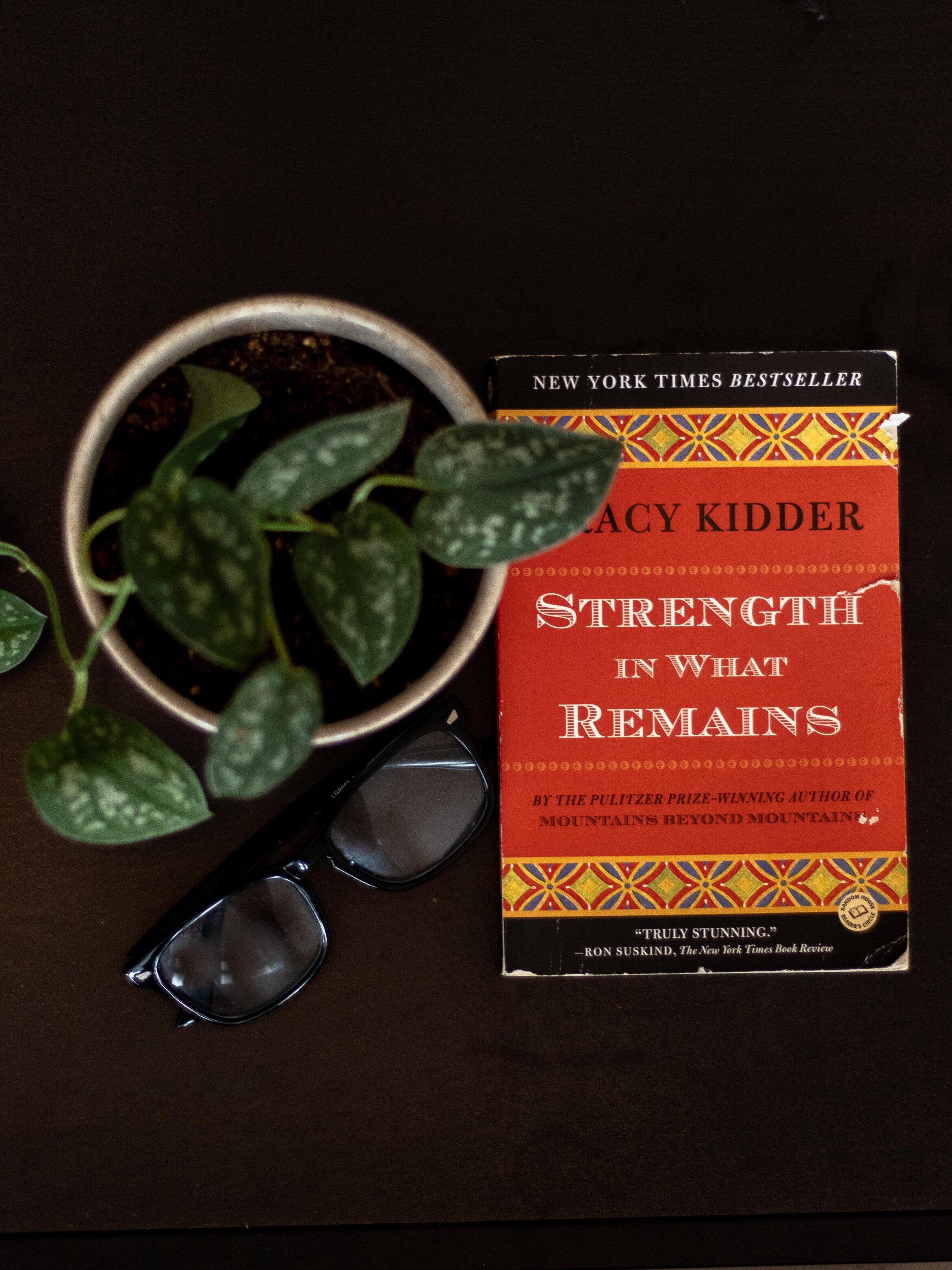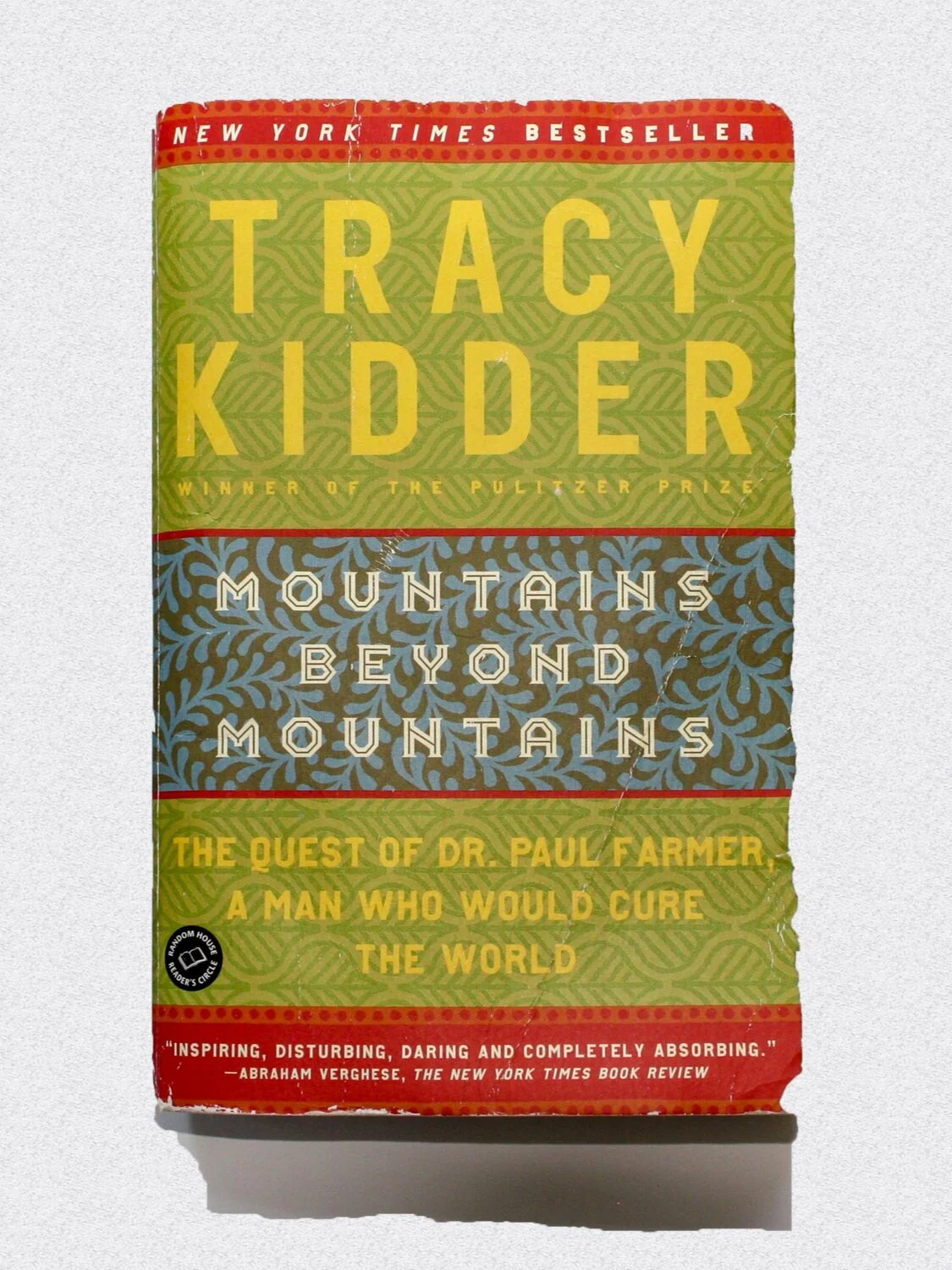Lessons from a Non-Profit: What to know before your next volunteer trip abroad
Voluntourism is a booming part of international travel, but it doesn't come without its pitfalls. It’s more important than ever that we educate ourselves as donors and volunteers in order to evaluate how effectively our time and money is being used abroad. Here are 9 lessons you should know before your next volunteer trip that I’ve learned after nearly a decade of working with a non-profit in Ghana.
A combination of volunteering and tourism, voluntourism offers young and passionate travelers an opportunity to partner with organizations around the world while giving back along the way. Simply put, it’s a great way to make a difference… or is it?
This new niche of volunteering has taken off in recent years. NPR reported that in 2014 more than 1.6 million tourists were spending upwards of $2 billion to travel the world and visit non-profit organizations, all in hopes of enacting change. These numbers have only continued to grow.
Just as with any other fad - i.e. social media, blogging, etc. - the market becomes saturated, often leading to a myriad of problems that comes at the cost of the consumer or, in this case, the volunteers. A simple search across the internet will uncover an emerging theme: quality programming from non-profit organizations is becoming easier to embellish as they make an effort to “keep up” with the demands of voluntourism. Unfortunately, these operations can often cause more harm than anything else within the communities they serve, even despite good intentions.
In November of 2018, Reuters published an article about an Australian lawyer, Kate van Doore, who arranged to take over an orphanage in Nepal only to realize that the children she thought she was helping weren’t orphans at all. As it turns out, the kids were removed from their homes, provided a fake identity, and exploited for profit. All for the sake of creating a scenario where scammers could prey on the pockets of foreign volunteers. Can you imagine the thoughts that ran through Ms. van Doore’s head as a child came up to her and asked to go home to his mom?
The sad reality is that this is not an isolated incident. A quick Google search of “fake orphanage” will disclose the top 3 hits - Nepal, Uganda, and Cambodia. Unfortunately, as the rate of volunteers grows, so too will the establishment of these “orphanages.”
In a more recent incident that sent shockwaves around the non-profit world, ABC News reported on a case in which the founder of an organization, Renee Bach, is being sued in the Ugandan Civil Court for allegedly practicing illegal and unlicensed medical care, leading to the deaths of 105 children. The article cites her reasons for starting the non-profit in 2010: A 19-year old Renee decided that it was something she was “supposed to do,” so she picked up and moved to Uganda with no plan. This feeling of enlightenment quickly transformed into clouded judgment, going as far as serving as the primary caretaker for severely malnourished children, hooking up IVs, administering blood transfusions, and more - all without any medical training.
These heartbreaking stories are the unintended consequences of people yearning to “do good” in the world, unaware of the impact their actions have on those around them.
It’s clear that voluntourism is here to stay, so how can we, as travelers, evaluate the ethics of the organizations that compete for our time and money? It’s not easy, but it can be done.
We must first obtain the necessary knowledge that allows us to critically evaluate how these non-profits are accomplishing the “good” they claim. Only then can we begin to enact change.
Here are 9 lessons that I’ve learned through nearly a decade of working in Ghana with Aya. I hope they will help you to better understand, navigate, and critique the practices of any non-profit organization you come into contact with during all of your travels and volunteer experiences!
1. PEOPLE ARE NOT A CHARITY CASE
It’s easy to have our vision clouded by the desire to leave a mark on the world, but we must remember how important autonomy is to all of us as human beings. Would you be happy if someone you’ve never met showed up on your doorstep simply because they felt you needed help and they should be the ones to provide it? No, probably not.
Once you donate a dollar or volunteer your time, you become a stakeholder in the organization. Dig deeper. How are they treating the beneficiaries? Is it a case of westerners going into a community with a preconceived notion that their help is needed, or is it a “back seat” organization that tries to collaborate with locals wherever possible?
The greatest piece of advice I can offer is to flip the script and put yourself in the shoes of the receiver. If this non-profit was serving you, would you feel respected and welcome them into your community or would you shut your door?
2. NO ONE HAS ALL OF THE ANSWERS
If you’ve traveled at all, then I’m sure you realize just how diverse different cultures around the world are. This is a beautiful thing, but be aware that it creates unique hurdles that any solution to even the simplest of problems must overcome. Who do you think is better equipped to handle a multi-layered obstacle within the community - a local that has been living there for 30 years or a teenager from America that’s volunteering abroad for the first time? A non-profit must know their limitations, both as an organization and as individual employees.
Make sure any group that you donate or volunteer with isn’t biting off more than they can chew. How does their history equip them to handle their current projects? How do they approach their programs, more specifically, do they develop key partnerships with experts in a certain field or do they try to do it all on their own? These are important questions to ask. For example, no one within Aya is an expert in global health, but we, along with community members, recognize that improvements must be made to keep students happy and healthy. As a result we work towards partnering with other local organizations such as Days for Girls Ghana.
If you ever find yourself in a volunteer situation that you feel is beyond your skillset, don’t be afraid to speak up. By staying silent you may unintentionally harm the people you are trying to help!
3. INVEST IN COMMUNITY STAKEHOLDERS
We’ve already covered the importance of non-profits treating any human beings as an equal, but it’s just as vital for organizations to INVEST in these same people. The most successful programs are the ones with a sound framework of community members.
When people feel involved and empowered, great things happen. So, does the organization you plan on volunteering with have an infrastructure on the ground with whom they are working and communicating with regularly? Will you have the opportunity to work alongside local staff that are bettering their community? It’s important to learn the operations you’ll be a part of before booking your ticket.
4. SUSTAINABILITY IS THE ULTIMATE GOAL
This is easier said than done and its complex nature is affected by most of the talking points made in this post. With that being said, it’s an important aspect of any evaluative process for every organization. Sure, a non-profit can bring in volunteers, make a quick buck with trip fees, and keep the cycle going. But what sets successful organizations apart is what they do AFTER volunteers work on programs and leave. How are they kept afloat? Who is overseeing them? Are they setup for sustained success - both internally as an organization and within the communities they serve?
Take the Uniformed Hope campaign I ran in 2011 with Aya, for example. Early on, we had identified accessible school uniforms as a major barrier to students attending classes. In Ghana, uniforms exude a sense of pride. If a family can’t afford one, it’s not uncommon for the student to skip school. Our team developed a simple solution: donors give $15 and we provide a school uniform for a child. Within a month we had raised enough money to purchase uniforms for every student at the village school, increasing attendance! We felt so much pride in the work we had done, but what we failed to consider was the future of the program. Donors had given one-time gifts, meaning we were operating on a limited budget that was quickly drained. What would happen when students outgrew their new uniforms and couldn’t afford replacements? As a result of our lack of foresight, enrollment decreased at the beginning of the following academic year. We learned that we had to think big picture - consider all options and all potential effects - to make the program effective. At the end of the day, the community worked together to create a “hand-me-down” program, recycling uniforms through the grade levels regardless of if it had been provided by our efforts.
The question that we always ask ourselves as an organization is how will our decisions either enable or inhibit the growth of those that benefit from our programs if Aya ever ceased to exist? Will our efforts continue transforming lives or will they fail? It’s important to keep this in mind as a donor. Sure, your money can make an immediate improvement almost anywhere, but it’s much more effective to ensure a LASTING impact.
5. LISTEN, EVALUATE, ADAPT, REPEAT
Many times when people learn of my work with Aya they commend my efforts and then get confused as to why I brush it off. The truth is, I’ve done very little on the ground in Ghana. Rather, 95% of my time is spent listening to parents, teachers, and our in-country volunteers, then re-evaluating our programs and adapting as best we can. It’s a constant cycle that never ends.
All too often organizations birth their vision with a fixed mindset, failing to create a platform for any collaboration and adaptation. This inability to morph ultimately prevents sustainable change, causing more harm than good in the long run. Listening is key, so make sure you understand how the organizations you work with incorporate this into their day-to-day work. It should be a major part of how they advance their mission!
6. NEVER LOSE SIGHT OF THE BENEFICIARIES
Organizations are constantly tip-toeing across an invisible tight rope. On one side is the volunteer experience, while on the other is the integrity and sustainability of their work at the ground level. Leaning too far in either direction can lead to problems.
Yes, I get it. When volunteers feel comfortable, connected and have a good time, they often return home feeling empowered and ready to spread the news about an organization’s work. Catering to them certainly has its benefits. After all, the volunteers are the same people paying the extra trip fees that fund the projects and programs on the ground. But at what cost? At what point does it actually take away from the people they meant to help?
It’s important to know if the organization you choose to partner with takes precautions to maintain the integrity of the community in which they work, or if the programs they’ve created have led to a revolving door of volunteers. Sure, playing with kids in an orphanage for a month sounds fulfilling, but what happens when the children become attached, you leave, and they never hear from you again? It’s hard to think about, after all, you never meant to break someone’s heart, but it happens more than we realize.
Sometimes decisions from organizations are unpopular, but it’s important to consider them from both sides of the tightrope. For instance, The Senase Project rarely brings unattached volunteers on trips, let alone operates full-fledged service trips. This isn’t because we want to isolate the community or hinder the donor experience, rather we aim to protect the relationships and trust we’ve been able to curate over the past decade of work. They are essential to how we ensure sustained success.
Find an organization that consistently walks this line with grace and poise while keeping their eye on the ultimate goal: serving the people.
7. HOW YOU GIVE MATTERS MORE THAN YOU THINK
As the saying goes, give a man a fish and you feed him for a day; teach a man to fish and you feed him for a lifetime. It often contradicts our natural instincts to say no to someone in immediate need, however, it’s important to understand how the specific way in which we give can lead to different outcomes.
Hypothetically, let’s say that John, a teenager that you met in a remote village during your travels, asks for $20. He says it’s for books for school. You oblige. How can you be sure that it’s used with your intent in mind? Maybe his parents took it for something else. Maybe he doesn’t even attend school and instead pocketed it for later. Oh well. What’s done is done. Once you leave the village, you’ve stayed in touch with John and when the next term rolls around he approaches you again. You struggle to say no. After all, $20 isn’t a lot to ask, so the cycle continues. Other people in the village take note of what John has done and now wait for the next foreigner to visit so that they can replicate the process. What once started as an innocent $20 has now quickly snowballed into something more.
I am in no way advocating for you to NOT donate to those in need. I am simply encouraging you to start to consider HOW you are doing so. Something that may seem insignificant can wreak havoc in the grand scheme of things. Before you write that next check, take a moment to learn how your money is utilized and dispersed on the ground.
8. YOU CAN’T HAVE A SOLUTION IF A PROBLEM DOESN’T EXIST
This lesson goes back to knowing your limitations and treating people as equals rather than a charity case. Unfortunately, it’s not uncommon for individuals to move to Africa and start a non-profit simply because it’s a place that’s portrayed as needing drastic amounts of help. But who are we to say what should be a priority within a community in which we don’t belong? Do we even have the right to determine who needs help and who doesn’t? I’m sure as hell not comfortable standing in front of a village of people that live on $1/day and forcing my own thoughts, ideas, and priorities upon them.
If an organization is truly going to help, they must first listen, collaborate, engage, and learn. It is during this process that they will uncover how best to utilize their skills. With The Senase Project, I have witnessed that over time, these relationships become mutual as community members begin to value what we have to say just as we do with them. This is when constructive solutions to complex problems are formulated and, in turn, become more sustainable.
Don’t jump the gun simply because an organization’s mission sounds good on paper. It’s much more pertinent to learn how they turn that vision into a reality; do your homework and make sure to keep your ears open along the way.
9. YOUNG & PASSIONATE IS NOT A QUALIFICATION
It might sound blunt, but it’s important to take a step back and remember that although helping others feels good on the inside, it can actually cause more harm than good if not done the right way. Before you go on your next volunteer trip, take a moment to reflect on your strengths and weaknesses. Consider what skills and passions you hold that people might benefit from. Use that information to find an organization that fits you, not the other way around.
At the end of the day, it’s important to realize that the communities in which non-profits work aren’t a place to “try something new” or boost your self-esteem; they are real people with real problems. Instead of trying to play the role of “Mr. Fix It”, go into each experience with a learning mindset. You might be surprised as to what the people can teach you!
The non-profit sector is expansive, but the more informed we are as investors, the higher the standards we can demand. This will ensure that the respect, sanctity, and autonomy of every community around the world remain acknowledged and protected.
It’s easy to see that all of these lessons are intertwined with one another. Collectively, they help to combat any negative and unintended consequences that may arise from trying to help others. I hope that they may help guide you in leaving your mark on the world in the most effective and sustainable way possible.
Thanks for reading!
What have been some of your experiences with non-profits? Have you ever volunteered abroad? Comment below and share your story!
Until next time, stay safe & happy travels!
Find this post helpful? Pin it and share with others!
25 Quotes to Fuel Your Wandering Soul: It's time for your next adventure
When I’m feeling stuck in the hustle and bustle of everyday life, I turn to these quotes to put my head on straight and inspire my next great adventure. In the very least, I hope by posting them here they might spark something in you, too. After all, the world is waiting… all we need to do is get up and go. Here are my top 25 quotes to fuel your own wandering soul!
When I’m feeling stuck in the hustle and bustle of everyday life, I turn to these quotes to put my head on straight and inspire my next great adventure. In the very least, I hope by posting them here they might spark something in you, too. After all, the world is waiting… all we need to do is get up and go. Here are my top 25 quotes to fuel your own wandering soul!
1. “And into the forest I go, to lose my mind and find my soul.” - John Muir
2. “ Travel changes you. As you move through this life and this world you change things slightly, you leave marks behind, however small. And in return, life - and travel - leaves marks on you. Most of the time, those marks - on your body or on your heart - are beautiful.” - Anthony Bourdain
This is one of my favorite quotes of all time. Sometimes those marks are beautiful, and sometime’s they’re not. I’ve returned from trips with more questions than answers at times. But that’s ok. It’s all part of it. It makes me a better person in the long run and for that, I am eternally grateful.
3. “The life you have led doesn’t need to be the only life you have.” - Anna Quindlen
How often do we feel stuck in the perceived direction of our lives? Probably too many times than we’d like to admit. I know that’s the case for me, at least. But it’s during those times that we forget to look around us. There are no guardrails on this path. There’s nothing to keep us moving in a linear and forward direction other than what society engrains in us. It’s ok to veer elsewhere for a bit and eventually, you’ll find your way back.
4. “No one realizes how beautiful it is to travel until he comes home and rests his head on his old, familiar pillow.” - Lin Yutang
5. “Life is either a daring adventure or nothing at all.” - Helen Keller
6. “All journeys have secret destinations of which the traveler is unaware.” - Martin Buber
7. “Do not follow where the path may lead. Go instead where there is no path and leave a trail.” - Ralph Waldo Emerson
8. “If you’re twenty-two, physically fit, hungry to learn and be better, I urge you to travel - as far and as widely as possible. Sleep on floors if you have to. Find out how other people live and eat and cook. Learn from them - wherever you go.” - Anthony Bourdain
9. “A good traveler has no fixed plans and is not intent on arriving.” - Lao Tzu
Throughout life, we’re taught that anticipation breeds success. If you want to get to the top then you must know what people want before they know it themselves. Traveling is different. The more you anticipate, the more you open yourself to frustration and letdowns. What happens when your picture-perfect itinerary is derailed by a broken-down bus? What happens when a canceled flight pushes your departure by a day? React and adapt is the name of the game. Sure, it’s always good to have an idea of things you’d like to see and do but be flexible. You never know where the journey may take you!
10. “We live in a wonderful world that is full of beauty, charm, and adventure. There is no end to the adventures we can have if only we seek them with our eyes open.” - Jawaharial Nehru
11. “Twenty years from now you will be more disappointed by the things that you didn’t do than by the ones you did do. So throw off the bowlines. Sail away from the safe harbor. Catch the trade winds in your sails. Explore. Dream. Discover.” - Mark Anthony Twain
12. “Once a year, go someplace you’ve never been before.” - Dalai Lama
Seriously, though. Have you tried holding yourself to this? Even if it’s a new restaurant in town or a weekend getaway to a place you’ve never been. You don’t have to go far to experience something new, but it’s important to gain perspective and open yourself up to your surroundings.
13. “Live your life by a compass, not a clock.” - Stephen Covey
14. “Happiness is letting go of what you think your life should look like and celebrating it for everything that it is.” - Mandy Hale
15. “Tourists don’t know where they’ve been. Travelers don’t know where they’re going.” - Paul Theroux
16. “Adventure is a path. Real adventure - self-determined, self-motivated, often risky - forces you to have firsthand encounters with the world. The world the way it is, not the way you imagine it. Your body will collide with the earth and you will bear witness. In this way you will be compelled to grapple with the limitless kindness and bottomless cruelty of humankind - and perhaps realize that you yourself are capable of both. This will change you. Nothing again will ever be black-and-white.” - Mark Jenkins
17. “At its best, travel should challenge our preconceptions and most cherished views, cause us to rethink our assumptions, shake us a bit, make us broader minded and more understanding.” - Arthur Frommer
I can vividly remember stepping off of a broken-down train in Morocco and seeing the vast landscape, but I can’t remember to buy bananas from the grocery store. Why? It’s because these experiences from the road are the ones that expanded my horizon and transformed my views. The people I remember from along the way are the ones who shattered my preconceptions about a culture or a place. They have morphed me into who I am. How could I possibly forget something so impactful?
18. “I travel not to go anywhere, but to go. I travel for travel’s sake. The great affair is to move.” - Robert Louis Stevenson
19. “We wander for distraction, but we travel for fulfillment.” - Hilaire Belloc
20. “Do you really want to look back on your life and see how wonderful it could have been had you not been afraid to live it?” - Caroline Myss
21. “If you think adventure is dangerous, try routine. It’s lethal.” - Paul Coelho
22. “Jobs fill your pockets, but adventures fill your soul.” Jamie Lyn Beatty Thi
23. “Why do you go away? So that you can come back. So that you can see the place you came from with new eyes and extra colors. And the people there see you differently, too. Coming back to where you started is not the same as never leaving.” - Terry Pratchett
24. “If we were meant to stay in one place, we’d have roots instead of feet.” - Rachel Wolchin
When you think about, she’s not wrong. We were given the ability to roam, so what are we waiting for?
25. “If I’m an advocate for anything, it’s to move. As far as you can, as much as you can. Across the ocean, or simply across the river. Walk in someone else’s shoes or at least eat their food.” - Anthony Bourdain
BONUS:
“To move, to breathe, to fly, to float. To gain all while you give; to roam the roads of lands remote, to travel is to live.” - Hans Christen Anderson
Which quote was your favorite? Have one that’s not on the list? Let me know in the comments below!
Until next time, stay safe & happy travels!
Pin this post and share with others!
10 books that will fuel your wandering soul
You can often find me wandering aimlessly through the travel section of a bookstore. It’s actually one of my favorite pastimes, searching for inspiration to plan my next great adventure. I never truly know what I’m looking for. Regardless, it’s not uncommon to find me camped out on the floor of the aisle…
*Please note: The post below contains affiliate links. Thank you for supporting Toone’s Travels!
You can often find me aimlessly wandering through the travel section of a bookstore. It’s one of my favorite pastimes, searching for inspiration to plan my next great adventure.
I’m not talking about guide books, although I enjoy eagerly flipping through those pages in anticipation of an upcoming trip. Rather, I’m referring to the stories that light a fire deep within your soul. Flames that you didn’t know were there. The books that provide the little spark you need to jump off the couch and out of your comfort zone.
Here's a list of my favorite reads that do just that. Get ready: it's adventure time!
The Book of Joy - Douglas Abrams
Douglas Abrams was granted exclusive access to a series of special meetings between His Holiness the Dalai Lama and Archbishop Desmond Tutu, discussing how to create lasting happiness in this often crazy world. Providing some much-needed insight while acknowledging their different cultures and religions, this book will shed renewed light on life as a human being. I’ve read this book three times, and will continue to search its pages for perspective, humility, and comfort whenever my mind craves it. Each time I flip through the pages, I learn something new about myself. For that reason, it remains at the top of my reading list.
Get it here.
Around India in 80 Trains - Monisha Rajesh
Monisha chronicles her adventures of riding the rails of India in this funny and eye-opening novel.
Yearning for something different, she sets out to explore what she remembers fondly as a child: the Indian trains. Working her way around the country, the author documents the 40,000km of railway travel and shares tidbits from her journey, providing the reader with beautiful images and hilarious stories.
If you don’t know much about India, this is the book for you! There’s no better way to discover the real side of this country than by riding the world-famous trains.
Get it here.
Strength in What Remains - Tracy Kidder
Now and then I stumble upon a book that shakes me to my core and makes me think long and hard about what I take for granted in life. This is one of them. In Strength in What Remains, Tracy Kidder documents the tale of Deo, a young man from Burundi that survived the genocide in 1993 and made his way to New York City with little money and no knowledge of the English language. It’s an often overlooked part of the world’s history, yet some reports estimate that upwards of 200,000 lives were lost over just three months during the genocide. The imagery that Tracy uses to depict how Deo was able to hide and eventually flee the fighting in Burundi and Rwanda is heartbreaking, but the underlying story of resilience will inspire you to get out in the world to learn all you can. After all, we must look back on history to create a better future.
Get it here.
Midnight in Siberia - David Greene
David Greene, a former Moscow bureau chief for NPR, takes readers along on his journey across the Trans-Siberian Railway. Going far beyond the typical Russia that we normally see and hear about in the media, David brings life to working-class citizens as he documents his interactions with locals along the 6,000-mile journey.
This book provides a much-needed glimpse into what life is like for Russians outside of the major cities, sharing their hopes and dreams for not only themselves, but Russia as a whole. Don’t be surprised if my next ticket booked is a Trans-Siberian adventure!
Get it here.
Wanderlust - Elisabeth Eaves
Never judge a book by its cover, but this one is precisely as it sounds.
Author Elisabeth Eaves takes readers along on an ever-so-relatable journey as she documents her impulsive travels and insatiable desire to discover the unknown. Through relatable stories, she is able to connect with the wanderer in all of us.
A true tale of self-discovery, this book may be just the thing you’re looking for to inspire your next adventure!
Get it here.
At Home in the World - Tsh Oxenreider
In this story Tsh Oxenreider brings readers along on her family’s leap of faith. She and her husband sell their house, pack their bags, and take their three young children on a trip around the world. Along the way they find themselves craving stability, but learn to find a sense of belonging through a series of human connections in the ever-changing and fast-paced world. If you’ve ever wondered what it might be like to take your kids around the globe with you, look no further than Tsh’s adventures. At Home in the World is one of my go-tos for some feel-good stories!
Crossing the Heart of Africa - Julian Smith
A modern-day explorer, Julian Smith follows in the footsteps of a 1800s love story in which Ewart Grogan sets out to prove his worth to the love of his life by walking the length of Africa, spanning from Cape Town to Cairo.
Running away from his fear of marriage, Julian attempts to follow Grogan’s original route, seamlessly intertwining both tales of adventure throughout the book.
I was completely captivated by every page in this book as the journey was an adventure in the truest sense of the word. For an epic story of 21st-century exploration, be sure to pick up a copy of this book.
Get it here.
Around the World in 50 Years - Albert Podell
Author Albert Podell is a truly extraordinary man because he didn’t just imagine traveling to every country in the world; he achieved it in addition to holding the record for the longest automobile ride around the globe.
Throughout Around the World in 50 Years, he eloquently and hilariously shares his tales of adventure from his years of traveling. From successfully surviving civil wars to eating African field rats, each word will captivate you and help depict parts of the world that we didn’t even know existed.
Albert is living proof that just because someone claims your dreams are impossible doesn’t mean you shouldn’t go out and chase them anyways.
Get it here.
Peaks on the Horizon - Charlie Carroll
In this tale of chance and adventure, Charlie Carroll gives readers a glimpse into the often secret life of those that inhabit the Tibetan plateau. His obsession began after reading Seven Years in Tibet in grade school, leading him to seek first-hand experience later in life.
Navigating the harsh political policies of China towards the Tibetan people, he is determined to enter the region and learn all he can. When he least suspects it, he meets a new friend, Lobsang, along the Chinese/Tibetan border. Lobsang is originally from Tibet but sought refuge in nearby Nepal.
Now he is trying to find his way back to the love of his life. In Peaks on the Horizon, Charlie Carroll not only takes us through his journey, but Lobsang’s as well. I learned so much about the history of the ongoing conflict by reading this book, unveiling a region previously unknown to me.
A must-read for anyone interested in this remote part of the world.
Get it here.
Mountains Beyond Mountains - Tracy Kidder
In another masterpiece authored by Tracy Kidder, Paul Farmer, widely known as the man who will cure the world of tuberculosis, shares his story with readers.
From Paul’s very first trip to Haiti to petitioning world leaders and working in Russian prisons, Tracy takes us along on every step of the journey. The pages of this book are filled with Dr. Farmer’s tenacious and often daring mentality, which ultimately left me with the belief that I can do more to help solve some of the largest problems in society.
This book is proof that one man can change the world.
Get it here.
Thanks for reading! It’s time to grab a drink, kick back and relax, and enjoy the sunshine. Have a recommendation of your own? I’m always looking for new reading material so please leave a comment below!
As always, stay safe & happy travels!
Pin this post and save it for later!


